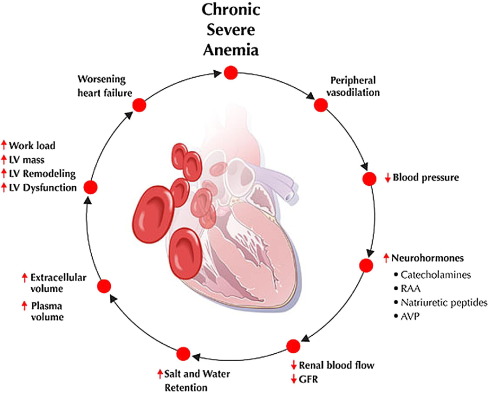Dhealthwellnes.com – Are you wondering if you can die from anemia? Anemia is a serious condition that affects red blood cells, which carry oxygen throughout the body. Untreated, anemia can lead to serious complications, including kidney failure and even death. In some cases, anemia can be life-threatening, especially in those with sickle-cell anemia. Here are some ways to identify if you’re suffering from anemia.
Severe Anemia Can Cause Heart Problems
Hemolytic anemia occurs when red blood cells are destroyed more quickly than they can be made. Hemolysis is an inherited condition. This condition can also be acquired after birth. Blood cancer, bacterial or viral infections, and drugs can also cause hemolytic anemia. Certain diseases affect the formation of red blood cells, such as sickle-cell disease. In this condition, hemoglobin is shaped abnormally. This results in low blood-oxygen levels and can cause organ damage and pain.
Severe anemia can lead to heart problems. The heart works harder to pump blood because it doesn’t have enough oxygen. A severely anemic heart can lead to enlarged heart tissue and even heart failure. If untreated, anemia can also lead to pregnancy complications, including preterm delivery and low birth weight. Ultimately, anemia can lead to death. Therefore, if you suspect that you may have anemia, be sure to consult with your doctor immediately.

There are many different types of anemia, but they all fall into one of three categories: anemia due to blood loss, anemia due to inadequate red blood cell production, or anemia due to other factors. Some of the common symptoms of anemia include weakness, dizziness, headache, pale skin, and brittle hair. These symptoms may become worse if you have poor diet or heavy menstrual periods. Pregnancy increases your body’s need for iron, and anemia may result in these symptoms.
Anemia Is One Of The Causes Of Death
Anemia is a condition characterized by a lower-than-normal number of red blood cells. These cells contain the protein hemoglobin, which carries oxygen throughout the body. There are 400 different types of anemia. Iron deficiency anemia is the most common, and it affects up to one in every four people in the world. Serum ferritin levels are significantly lower than normal levels, and the blood fails to carry enough oxygen throughout the body, leading to severe complications.
If you suspect that you have an iron deficiency, consult a doctor immediately. Anemia is one of the leading causes of death in underdeveloped countries, so it’s important not to leave it untreated. If you’re suffering from anemia, consider taking a vitamin C supplement or eating foods rich in iron. Anemia is debilitating because of the exhaustion it causes. Without iron, life would be exhausting.

The body is very complex in its production of red blood cells. Several organs communicate with each other through the bone marrow. Anemia occurs when one or more of these organs doesn’t receive enough oxygen, and as a result, the blood’s hemoglobin level is below normal. People with anemia often have pale skin and become easily fatigued. Anemia can be temporary or long-term and can range from mild to severe.
Ways to Prevent Anemia
Another way to prevent anemia is to eat foods rich in vitamin B12 and folic acid. Fruits and vegetables are great sources of iron, and a well-balanced diet can help prevent it. Eating orange juice and dark green leafy vegetables is also an excellent way to get these nutrients. If you want to have a fruit smoothie, try blending kiwi, apple, and honey. You can drink this juice whenever you need a boost.

Iron overdose can be deadly. It usually results from repeated blood transfusions or genetic disorders, but it can also occur due to overconsumption of iron supplements. Severe iron overdose can lead to multisystem organ failure and death. It is best to get medical attention if you are worried about anemia. While it’s not common in the US, it is a common cause of accidental drug deaths in children between 1983 and 1991.
Reference:
